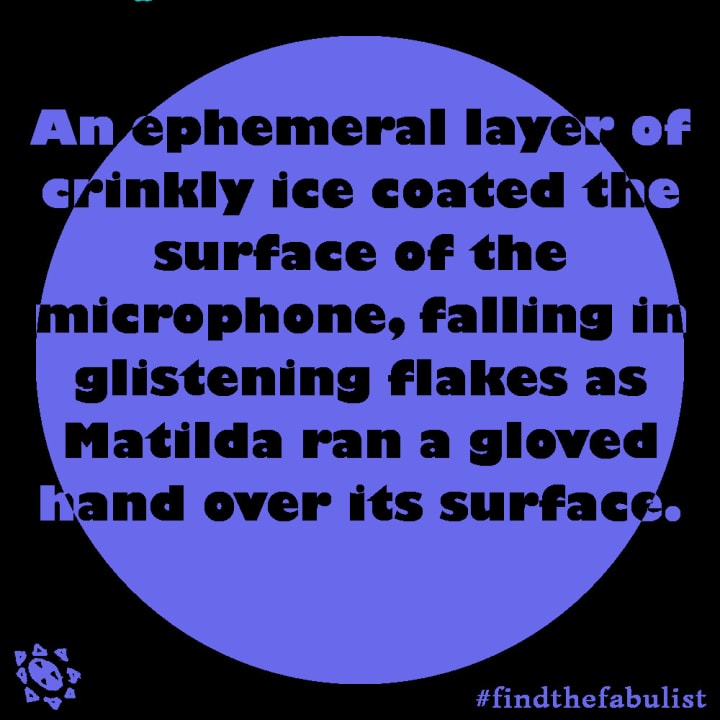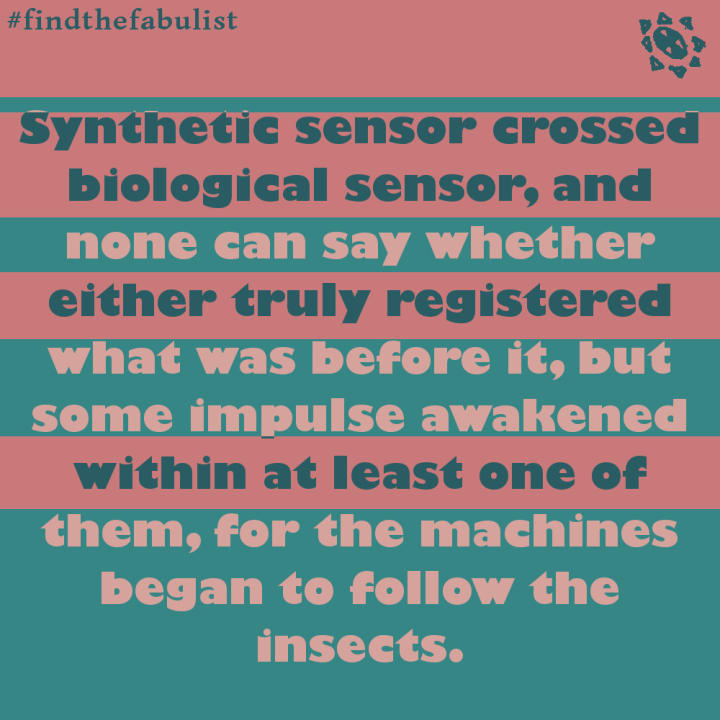Short Shorts: The Essentials of Flash Fiction
The perfect form for the pressed for time.
Even with our ongoing cultural obsession with really long books, the literary scene may actually be trending toward very short works. Flash fiction is a relatively recent concept but it's spreading with zeal, with new flash markets and anthologies cropping up just about every day.
While flash fiction is a limited form, it's also one with a lot of promise, especially for certain groups of people. Whether it's working adults with only an hour a day to commit to the craft, teenagers in need of some crucial industry experience, or would-be novelists looking to build their reputations, flash fiction offers an easy entry point into the literary marketplace. It's popular with readers, too - an easy fit for small screens and all-too-brief breaks.
So let's take a brief foray through the world of the world's briefest fiction, while I search for a way to apologize for how this sentence began.

What is Flash Fiction?
It's a trickier question that you might think, because a lot of people have their own special definitions for flash fiction. I've heard people say that flash fiction has to be under five hundred words, or under a hundred words, or exactly a hundred words (that's actually a drabble). I've also heard people say that the length doesn't matter as much as how it's written - in response to some prompt or in a certain amount of time or what have you.
I'll keep it simple and go with the definition favored by speculative markets and logging tools like the Submission Grinder: Flash fiction is any work of under 1000 words (and anecdotally, they're typically around 500-750 words). This can vary by market - some will take pieces that are a little longer (1500 words in the case of Daily Science Fiction), others may restrict submissions to 750 words or even less - but 1000 is standard. The term flash fiction is really just a more elegant replacement for the redundant term "short short story," which always looks like a typo (and stands opposite the oxymoronic "long short story," generally a work over 5000 words).
There are a lot of reasons to start off writing very short works:
Flash fiction pieces can be written quickly. This is an obvious plus - it takes less time to write a short piece than a long one. Even a slow writer can finish a flash piece in under an hour. This makes flash fiction ideal for anyone with a tight schedule, but it's also highly recommended for the kind of person who never finishes anything. If you have a hard drive burdened with dozens of unfinished novels, then this might be the form for you.
Flash fiction allows for more experimental writing. The brevity of flash fiction means that many pieces are experimental. Flash pieces make for good experiments if you've wanted to try something a little avant garde. They also allow more experienced writers to play around with new genres, perspectives, forms and characters.
Flash markets have high acceptance rates. This makes sense if you think about it - most markets pay by the word, so for the price of a single standard length short story, a market could buy three or four flash pieces. This is even true for markets that pay professional rates, which makes flash fiction a good way to help writers qualify for organizations such as the Science Fiction & Fantasy Writers of America.
Flash fiction pieces can be used to expand and promote long-form works. Of course this is true for standard short stories as well, but the above factors make flash markets especially desirable for novelists in between projects. A character vignette can do wonders to promote a novel or develop a story universe.

The Elements of Story
Short stories live and die on their concepts. Without a lot of room to build rounded characters, establish settings, or play with the reader's expectations, the writer is putting a lot of weight on the story's central idea. In flash fiction, the concept pretty much is the story. Remember, 1000 words is only about three pages, so that nice plot arc you've probably got affixed to the wall by your desk isn't going to fit.
The only difference is length. Flash fiction isn't any different than other types of short story - which, themselves, differ little from other forms of fiction. A story - fact or fiction - has a few basic elements: Characters, setting, conflict and plot, to name the most frequently invoked. The one distinction is that a short story usually has a limit on how much space one can give to these elements, and flash shrinks that space even further.
A flash piece can be a complete story, but it has to be a very basic story with no wasted space. Let's look at how those elements might fit in 1000 words or less:
Characters - Needless to say, your flash story isn't going to have a big cast. Most flash pieces only have two characters; some just have one, and more unusual pieces don't have characters at all, instead using the setting as a "character." Don't try to go for three characters - it might work, but the room's going to be crowded. You likely won't have space for backstory, so be prepared to characterize everyone in the story through actions and dialogue alone. Don't be afraid to go broad with your characterization - flash fiction isn't subtle, and editors can be a dense bunch anyway.
Setting - Here's where you're really going to have to slim down. You're not going to be describing rooms or vistas or clouds, or any of those other things people do to prove how "writerly" they are. If your piece is set in a real world location, find a way to slip the place and time to your readers and trust that they can set the stage themselves. If your setting is more fantastic, then this will be harder. Flash fiction isn't meant for really elaborate worldbuilding, so if you can't fully describe your spec setting through allusion, then you might just want to give yourself permission to go long.
Conflict - Any of the classic conflict types will work with flash ("Man v. Self" might be a stretch, but I've seen it done). Just remember to keep it simple.
Plot - Simplicity is the watchword here, even more so than the rest. Flash pieces - along with most full-length short stories - are built around a single concept. That might be a crime, a piece of technology, a disaster, a social trend...one central point around which everything else pivots. At the risk of repeating myself, it is the concept that makes the piece when writing flash. If the concept is too complex to sell itself, then it might not work unless you can cut the rest to the bone.
A Story Analysis
So let's look at one of my own flash fiction pieces, actually the first piece of fiction I ever sold to a professional publication: "Starless Night." And yes, you really do need to be this shameless if you want any chance at success here.
In retrospect, I'm surprised that this story got picked up. There are a lot of things I don't like about it - it's a bit dialogue-heavy up front, there's some repetition in the descriptive sections, and even at 900 words it feels like I could have trimmed it a little. All of that may be explained by the Nature's strict publication standards, which allow stories of only 850-950 words. I wrote this piece with Nature in mind, and it's about 200 words longer than most of my flash pieces.
I don't want to be too negative, though. After all, "Starless Night" was a success - it sold for a good amount of money and very quickly, spending just four days in the queue, and was only rejected once before that. So instead, let's look at what I did well.
Going back to our fundamentals of flash fiction, what we have in "Starless Night" is a story with very simple elements. Without a lot of room for complex plots or establishing voice, we go with something more essential. We have one speaking character in a small, self-contained setting and a basic survival plot in which the protagonist is failing. Because it's science fiction, we also have an alien make an appearance. Between the alien and the astronaut, this is a classic spec story. That's important - while flash fiction can be very experimental, it's good to root it in something archetypal.
The inspiration for this story was the book Exoplanets by Michael Summers and James Trefil. One chapter concerns rogue planets, those that are "starless" in that they orbit galactic central point instead of a star. In this chapter, the authors speculate on what kind of life could inhabit such a planet and what extreme adaptations it would need to have in order to endure the intense cold and radiation on the surface.
By the way, this does mean that the alien - which some people I spoke with overlooked - is the point of the story. "Starless Night" is not intended to be some kind of argument against manned space exploration. I have been accused of this, and that's wrong. I just needed a human to land on a rogue planet to discover the alien, and realistically there's no way to get her back. So she dies, and in dying laments that she agreed to the mission in the first place, which is not my argument (Do we really need to go through the whole "Not every character in a work of fiction is a mouthpiece for the author" thing again?).
Sidenote on that: If you write and publish anything (and science fiction seems to be especially vulnerable to this), people will read their own politics into it. There's really nothing you can do to stop people from misinterpreting you, so just roll with it as best as you can.
The concept of space exploration is very archetypal for science fiction, and I think that did help things along. There aren't a lot of space exploration stories right now - spec markets really trend toward stories about AI, social psychology and Internet trends of the Future! - and that makes stories like "Starless Night" stand out. Writers are prone to chasing trends, and not without cause - those trends are driven by what editors like, and editors are your actual audience, so writing for them is sensible to a point. The problem is that if, say, "scourge of social media" stories are perceived as popular, the market quickly reaches its saturation point. If you are doing spec, you might be better served if you focus on SFF standards and put your own twist on them.
The other takeaway is simplicity. Note how much of the story is in the background here. There's some sort of program that the protagonist mentions, but all we need to know is that this program is the reason she's currently freezing to death on a rogue planet. A longer story could (and should) have more details, but we don't need that. We only need enough information to establish the basics - the who, what, when, where and why (I suppose we don't know the "when," but one can infer that it's in the future). Everything else you trim out, and this is how you get a complete story in under 1000 words.
Where Do I Start?
There is a catch here - publishing your works. Look at something like the Submission Grinder and it might seem like the world is ruled by flash fiction, but this is an illusion. There are only a handful of reputable flash markets in any given genre. Other markets - those without word count floors - may consider flash fiction, but these publications aren't designed with flash pieces in mind and are unlikely to take them.
Fortunately, there are plenty of flash-specific publications out there - even a few that offer professional rates.
About the Creator
Andrew Johnston
Educator, writer and documentarian based out of central China. Catch the full story at www.findthefabulist.com.







Comments
There are no comments for this story
Be the first to respond and start the conversation.